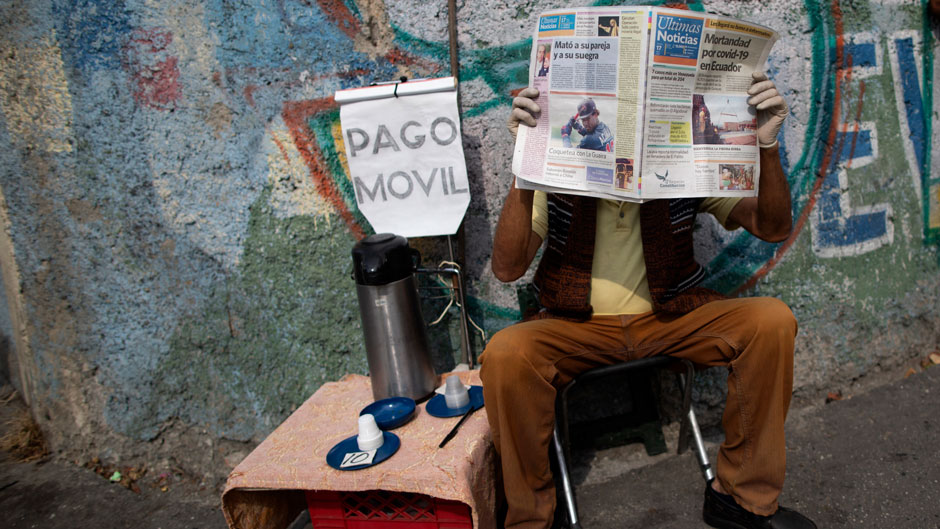Venezuela had been in a deep political and economic crisis before the coronavirus pandemic erupted. Inflation hit 800,000 percent last year and 4.8 million people have fled the country.
The Venezuelan government recently reported that nine people had died from the virus and reported 171 cases, but there is doubt as to whether those numbers are accurate.
As the pandemic began its march through Latin America, Venezuelan leader Nicolas Maduro ordered a countrywide quarantine on March 17, 2020. On April 11, the government extended the quarantine for another 30 days.
In the meantime, the United States has imposed a series of sanctions against Maduro’s totalitarian government, which included charging him and others with narco-terrorism. Last week, the U.S. ordered Chevron to halt oil production in the country to further pressure Maduro’s government.
In the following discussion, University of Miami experts address the latest sanctions amid the ongoing economic crisis in Venezuela.
How has the coronavirus pandemic affected the country?
First, Venezuela’s health system is already in shambles and the pandemic exacerbates the country’s lack of functioning hospitals, medical supplies, consistent electricity, etc. In this immediate medical sense, COVID-19 makes a bad situation worse. Venezuela issued quarantine orders relatively early, though, which is likely to ease the burden on the health system, at least some. Second, COVID-19 will also make Venezuela’s deep economic recession worse. Millions have fled Venezuela in recent years due to deteriorating economic conditions, lack of employment, and routine shortages of basic supplies. A nationwide quarantine will make it impossible to find work or generate income and very difficult to find food for the millions of impoverished citizens who remain in the country.
—Michael Touchton, assistant professor of political science, College of Arts and Sciences
Is this the appropriate time to impose more sanctions on Venezuela?
The quarantine situation is likely to have more of an effect on the economy than any sanctions. The quarantine, coupled with intensifying U.S. interdiction efforts for drugs in the Caribbean and extremely low oil prices, will likely cut off any revenue streams for the government. I don’t think new sanctions would add to the pressure very much.
The opposition in Venezuela seems to be quiet. What is Juan Guaidó, the Venezuelan opposition leader, doing to promote changes in the country?
According to this article in The Guardian, allies of Guaidó and Maduro have been engaged in talks about COVID-19, the associated fuel shortages and hyperinflation, and the possibility of regime change due to U.S. sanctions. Both Guaidó and Maduro are taking public measures to mitigate the pandemic in the hope that it undermines the other’s political position.
—Michael Touchton, assistant professor of political science, College of Arts and Sciences
What will the imposed order by the U.S.—for Chevron to leave Venezuela—mean for that country and its oil industry?
There are two things that can happen. The more likely scenario is that the Venezuelan government can take over the operations and maximize the output, with limited investments, which will eventually lead to non-productive assets. The less likely scenario is that China or Russia will take over the Chevron stake.
—Arun Sharma, professor of marketing, Miami Herbert Business School
Given all the economic instabilities in the country, can Nicolas Maduro retain power?
Millions of Venezuelans were living in precarious conditions before the pandemic and others had left the country. However, Maduro has retained power through economic catastrophe, and that catastrophe was the Chavez/Maduro regime’s fault in the first place. If he can survive an economic collapse that his regime caused, he can survive COVID-19. If anything, a pandemic gives authoritarian leaders an excuse to further suppress public protests and opposition organization through quarantine orders. It is possible the pandemic erodes his support, but also possible he emerges more entrenched than ever.
—Michael Touchton, assistant professor of political science, College of Arts and Sciences

